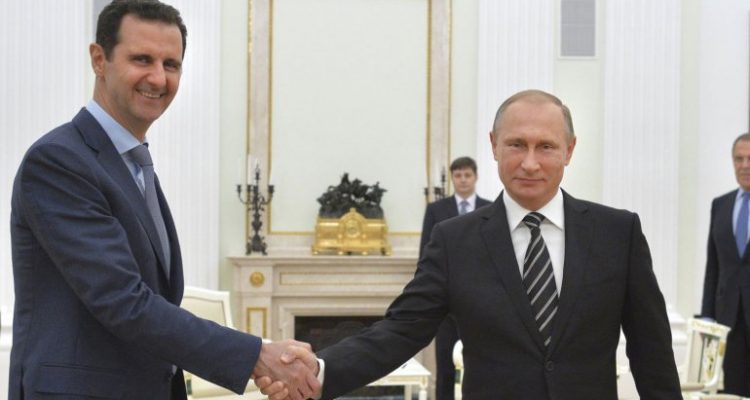The United States, with the help of Britain and France, launched airstrikes on April 13 near the Syrian capital —Damascus— and west of Homs. The airstrikes were in response to President Bashar al-Assad’s alleged chemical attack near Damascus on April 7. The attack resulted in the deaths of over 40 people, reported The New York Times. The United States’ latest response targeted facilities for Syrian research, storage and military, and according to The New York Times, put the country in conflict with Syria, Russia and Iran — both of whom support Assad militarily. The decision to get further involved in Syria is viewed with trepidation by some given the possible repercussions from the three countries. However, if President Donald Trump’s administration maintains that they will only launch attacks on “chemical weapons-type targets,” I think that it is beneficial to eliminate the resources used to harm Syrian citizens.
According to The New York Times, Trump addressed the nation on his reasoning for ordering strikes on Syria. He said, “The purpose of our actions tonight is to establish a strong deterrent against the production, spread and use of chemical weapons. Establishing this deterrent is a vital national security interest of the United States.” He also condemned the leaders of Russia and Iran for their complacency, stating, “The nations of the world can be judged by the friends they keep.” While my political views often oppose Trump’s, I agree that Russia and Iran need to create a distance from Syria and, more specifically, Assad. However, it works both ways; those who deal directly with Russia and Iran must apply pressure to encourage them to cut ties with Assad. To do so, the United States should consider the mutual trade partners it has with Russia and Iran, such as China, and put its own pressure on the mutual partners to limit or cease trade with these countries. By applying pressure, even though China has supported the Syrian government, China and similar countries would be forced to consider which allies it values to maintain their economy — democratic or totalitarian ones.
Additionally, we should not overlook the ability of the United Nations Security Council to force economic sanctions on Russia and expose its complicity with the attacks in Syria. On April 16, United States Ambassador Nikki Haley recommended new sanctions to limit Russia’s ability to aid Assad and the Syrian government, according to 13 WTHR Indianapolis. However, CNN reported that Haley was rebuked by Trump’s new chief economic adviser Larry Kudlow. According to CNN, Kudlow stated that “there might have been some momentary confusion” regarding her early announcement of the sanctions. Regardless of the timing of Haley’s recommendation, the sanctions that she suggested are a necessary next step to prevent Syria from continuing these assaults. More so, the condescending remarks directed toward Haley distract from the focus that should be placed on these sanctions, which lessens any retributive justice for Assad.
Until Russia and Iran are isolated, there will not be motivation to restrict resources from being available for the Syrian government to use against its people. Thus, Russia and Iran will be able to uphold trade leverages over nations and essentially limit the ability for anyone to oppose the regimes currently in place that are repeatedly launching attacks on civilians. Therefore, as we proceed, we should continue to restrict our airstrike targets to resource bases for chemical weapons to limit the harm done to innocent Syrian civilians. However, doing so is only part of the solution. Keeping an eye toward long-term efforts, other countries in the West and other regions of the world must hold the countries that maintain relations with Syria, or their allies, responsible for their passivity. Moreover, while totalitarian regimes are likely to side with similar governments, democratic nations cannot allow these governments to stronghold them into inaction or willful ignorance.


Leave a Reply